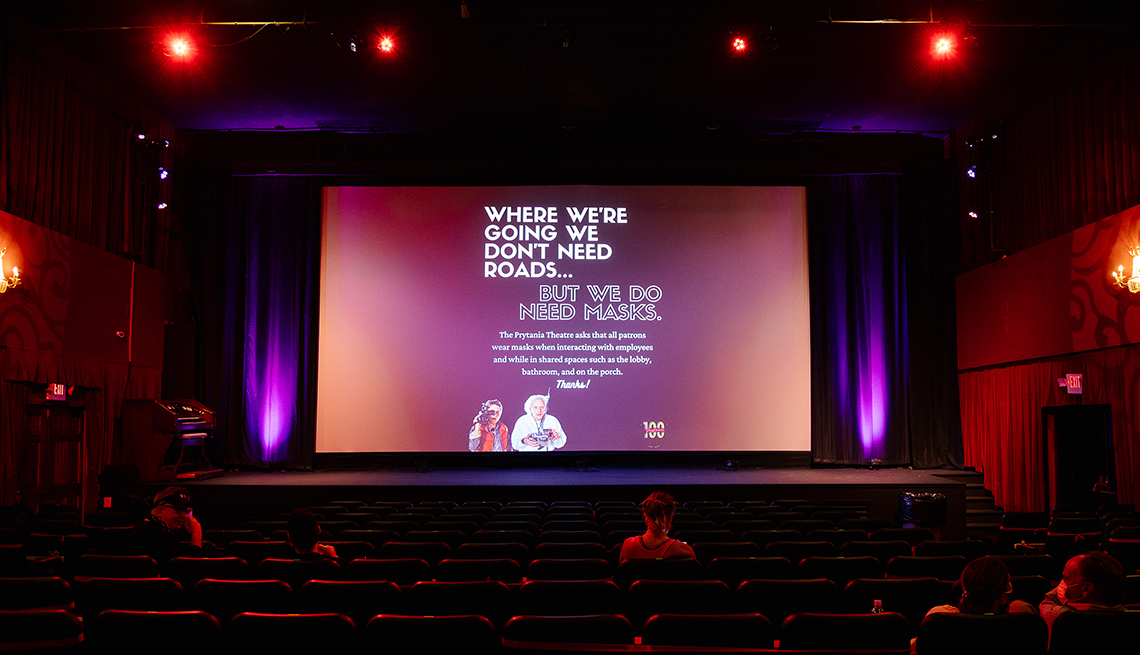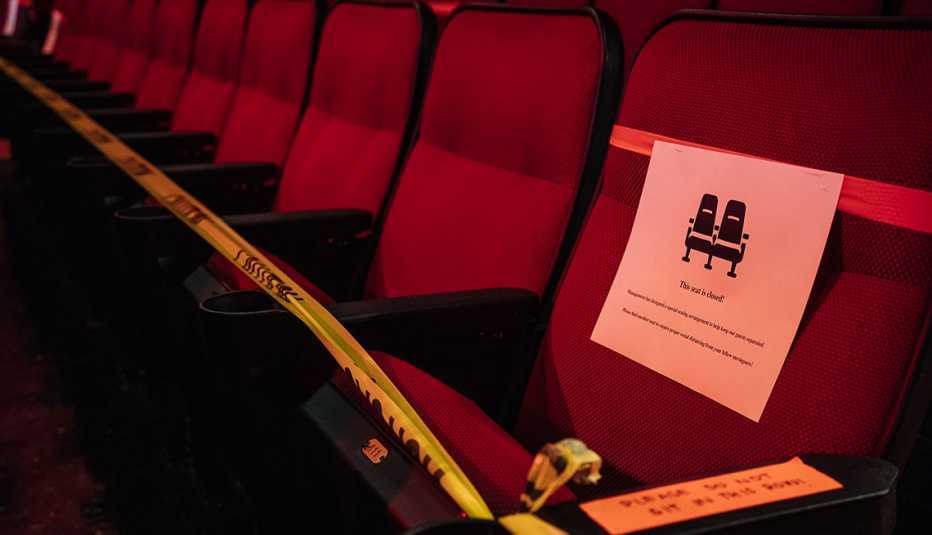AARP Hearing Center
Good news for film fans: After months of remaining shuttered because of the coronavirus pandemic, movie theaters are finally starting to reopen in late June — and maybe even as soon as mid-month in parts of California. The less good news: Screens might be filled with 50-year-old Oompa Loompas.
While California's just-announced reopenings are still somewhat theoretical — the vast majority of screens in the Golden State will likely remain dark for several more weeks as exhibitors mull over new safety regulations — some independent theaters and smaller chains in other parts of the country are already open, providing a sneak preview of what going to the movies could be like for the rest of the year (and perhaps into 2021).
"We're seeing different regions opening at different rates,” says Patrick Corcoran, vice president and chief communications officer at the National Association of Theater Owners (NATO). “It's going to be a longer-term process. But people are kind of stir crazy. They want to get out of the house. So what theaters are doing is making sure it is safe and comfortable to come back.”
What you can expect this summer in theaters
Some changes to expect when audiences do come back: smaller crowds, longer lines, cleaner bathrooms and possibly temperature taking. And because Hollywood studios have delayed the debuts of the big summer titles — like Black Widow (moved from May 11 to November 6), Wonder Woman 1984 (June 5 to August 14) and Top Gun: Maverick (June 24 to Dec. 23) — movie screens won't have a whole lot of new product playing on them, at least not for a while.








































































